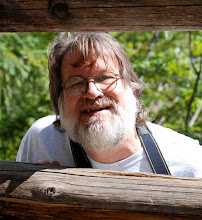If death doesn't truly kill us--that's the big if--it changes everything. It means that many paradigms driving our material culture are as dead wrong as when everyone thought Earth was pancake flat.
The media culture dotes on graphic details of fatal car wrecks, plane crashes, and murders, but ironically we seldom publicly ponder what happens next to the victims who died. The news media assume flatline oblivion and focus mostly on the gore of the exit scenes.
So here's my issue: what if the news is wrong? What if the news gives us only part of the story?
This could be all about vision and perspective. Say that you had a news team standing on the tracks watching a train disappear into a tunnel. Without a helicopter or a second news team, objective reporting would have to conclude that the train disappeared. TRAIN LOST INSIDE HOLE IN MOUNTAIN--HUNDREDS FEARED DEAD.
It would take investigative reporting to figure out that the train emerged from the other side of the tunnel and reached its next station stop safely. Whew.
While you may not believe that the news is wrong in how it reports on death, millions of people who remember popping out of their bodies do. They believe that the news is appallingly shortsighted. They have been to the other side of the tunnel.
I have not had my own near-death experience, but I know
people who have had them. I also like reading accounts of NDEs.
Since reading accounts of NDEs and hearing people's stories in person, I have become increasingly incensed at how the news treats the subject of death. (Watch me shudder in anger.)
Of course, the reason why the news reports death as it does is that science has not gotten very serious about investigating what death really, truly is. Amazing anecdotal evidence is piling up that strongly suggests that death is a transition to another dimension, not a grand finale.
I think the implications of that are enormous. It has a direct bearing on the hotly contested issues of our day including stem-cell research, abortion, war, capital punishment, health care, hospice care, etc.
Meanwhile, we're spending billions of dollars to explore outer space. Ostensibly we're doing this to discover the origin of life. But what do we spend to study the true nature of death?
It is with this vantage point that I will devote much of this blog to point our how the news shapes our vision of reality, and it may not be a correct vision. More and more I see the news and newsmagazine programs as much more of a soap opera. I think it is only fair to shine a light on this.

